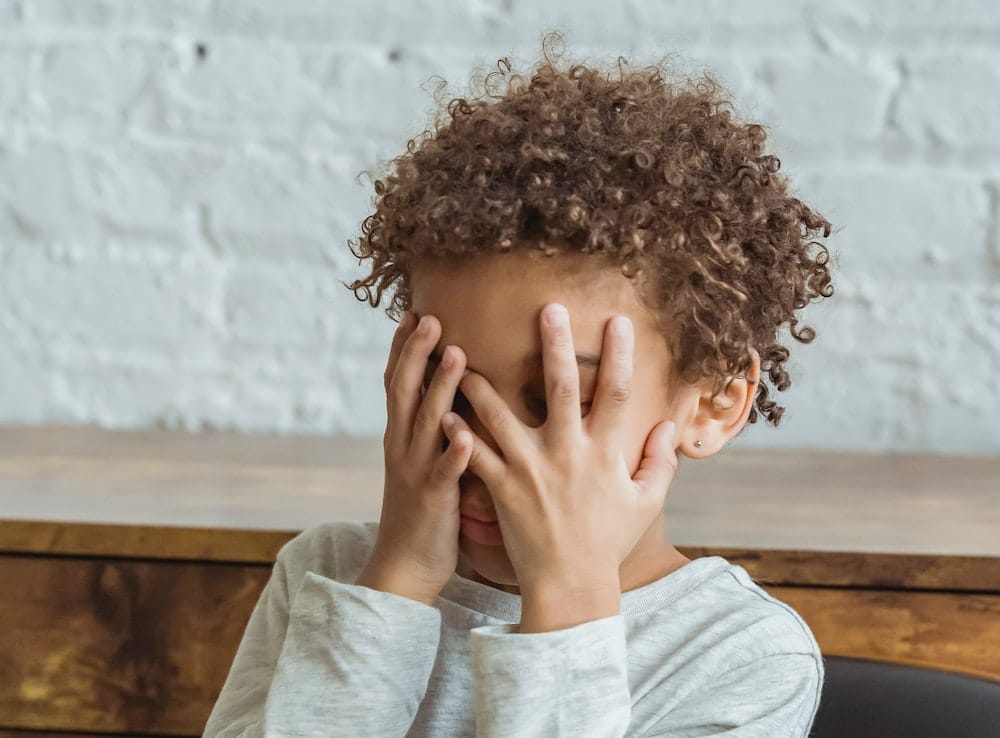 When you think about social anxiety, it’s rare to think about how it might affect a child. Most people think about adults in social situations or in the workplace. But, it’s not uncommon for children to experience social anxiety and struggle with relationships.
When you think about social anxiety, it’s rare to think about how it might affect a child. Most people think about adults in social situations or in the workplace. But, it’s not uncommon for children to experience social anxiety and struggle with relationships.
There are several potential causes for social anxiety in children. They may have had a bad experience with bullying or embarrassment. But, most research has shown that social anxiety is often a combination of genetic and environmental factors.
It stems from the ventral vagal system—the branch that serves the social engagement system of your body. Have you ever felt uncomfortable around someone? Are there people you naturally seem to trust? That’s the ventral vagal system at work, telling you to trust your instincts.
Tapping into the vagal system can actually help your child overcome their anxiety. But, it’s unlikely they’ll be able to do it on their own. So, how can you prepare them?
Understanding Their Behaviors
Some parents won’t immediately recognize that their child is dealing with social anxiety. You might think your child is just shy or doesn’t know what to say/do around others. That’s why it’s so important to pay attention to their behaviors.
A child who has social anxiety will either experience a lot of fear about being in a social situation, or they’ll struggle through it. They’re often quiet about their worries and talk about what they’re feeling.
Unfortunately, that can lead to mental and physical distress. It’s not uncommon for a child with social anxiety to have frequent stomach aches simply because they’re stressed about holding everything in.
Seeing your child in that kind of discomfort is hard. It can also be confusing for a parent. You might wonder why your child seems so scared to go to school or why they’re so adamant about not spending time with friends.
What Can You Do to Help?
If you’re concerned that your child is dealing with social anxiety, there are ways to support and help them.
The most important thing is to manage and adjust your expectations. Don’t allow yourself to fall into the trap of thinking your child’s behaviors are “wrong” somehow. Not every child is social, and it’s something that can’t be forced.
Instead of trying to force or set up social situations, give your child time to transition. You can give them the tools and skills needed to make social situations easier. Practice co-regulation as often as possible. That includes providing warm, supportive interactions that help “coach” your child rather than make them feel embarrassed or ashamed.
Teaching the Right Techniques
Not sure how to guide them through their social anxiety?
Try teaching them deep breathing exercises for when things feel overwhelming. Or, work through the basics of cognitive reframing by asking them to think about the worst-case scenario and taking it apart.
It can also be helpful to work on their problem-solving skills, as well as relationship skills. In some cases, your child might feel anxious because they don’t know how to “make friends”. While you can’t force friendships, you can teach them things like conversation starters and listening skills.
If you’re still concerned about your child’s social anxiety, professional help is often the next step. A therapist or counselor can get to the underlying cause(s) of your child’s social anxiety. From there, it’s easier to rebuild their way of thinking and guide them to a more comfortable place in social situations.
___
Contact us to set up an appointment for your child. Social anxiety is something they don’t have to live with forever. They can work through it now for an easier, more comfortable future full of relationships. Serenity EFTC offers play therapy in Colorado.
